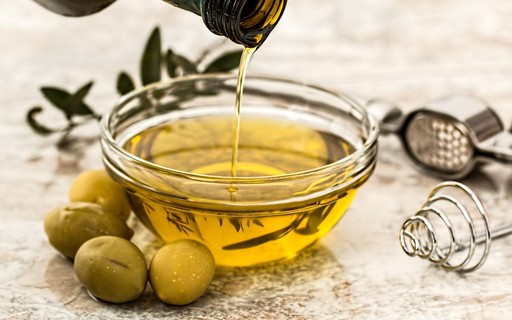
Extra virgin olive oil can reduce the loss of nutrients from food during cooking (Photo: Engagement / Steve Buissinne by Pixabay)
In addition to being rich in Fats Biologically active monounsaturated compounds, vitaminsAmong other things, extra virgin olive oil is able to reduce the loss of nutrients from food during cooking. This is what a review of more than 90 scientific works of the researcher shows. Jose Fernando Rinaldi de AlvarengaAnd the FAPESP . Scholarship and postdoctoral fellow at food research center (ForRC), Center for Research, Innovation and Publishing (sepid) of FAPESP and based at the School of Pharmaceutical Sciences of the University of São Paulo (USP).
The research was conducted in partnership with colleagues at the University of Barcelona, Spain, and published in Article – Commodity in the scientific journal Trends in food science and technology.
“Before any explanation, it is important to categorically reject that cooking with this oil is unhealthy,” says Alvarenga, in an interview with the FoRC. In the past, according to him, it was believed that Extra virgin olive oil Fatty acids are oxidized at higher temperatures. “This is because of the oil’s burning point, which is when it happens oils They begin to burn, smoke and oxidize. Although its burning point occurs at lower temperatures than other oils, today we know that smoking It does not come from these fatty acids, but from a few components of olive oil. Extra virgin olive oil “withstands” high temperatures like other oils. “
He explains that in extra virgin olive oil, there is a predominance of monounsaturated fats, which among other benefits, Antioxidants. Because of this action, the decomposition of olive oil is slower compared to other oils. This protects both Nutrients From the oil itself as well as from the food.”
for example Biologically active compounds in foodWhich has many beneficial health properties. “Extra virgin olive oil helps prevent oxidation of phytochemicals. This leaves cooked food Much healthier, as it preserves important components that would otherwise be gone. When we compare the fast frying of Tomatoes With and without oil, for example, the amount of lycopene can be reduced without the oil being present in the cooking process. However, by using extra virgin olive oil, we have been able to preserve this compound associated with the prevention of Prostate cancerComments a postdoctoral fellow.
cooking effect
The study showed, however, that the decomposition of the bioactive compounds varies depending on the cooking method used. Numerous studies of nutrient loss have been analyzed with foods prepared in the oven, in the pan, sautéed, fried or sautéed using the technique of Spanish Called soup, it is similar to preparing a mokika or pot meat.
“We have seen that the technique that promotes the most deterioration is prep in the oven, as it involves very high temperatures and a very long cooking time,” Alvarenga explains.
levels decay They also differ depending on the biologically active compound. In the case of water-insoluble compounds, such as carotenoids and fat-soluble vitamins, boiling and steaming are the best methods for preserving these compounds. On the other hand, there is a great loss from it when prepared in microwave And fried.
According to the researcher, it is important to emphasize that there is no contraindication method. “But, in general, if the intention is to make the most of nutrients vegetarian foods and olive oil, techniques with shorter cooking times and milder temperatures are preferred.”
manufacturing
For Alvarenga, olive oil, in its extra virgin form, brings benefits because it does not go through the same manufacturing processes as the world’s most popular oils. Brazil, such as sunflower, soybean and corn. The Mediterranean diet is considered one of the healthiest diets in the world, largely due to olive oil. One reason behind this is that most oils are taken directly from olives. That is, it does not undergo a refining process,” he explains. “Extra virgin olive oil processing does not involve heating, only physical processes such as cold pressing, centrifugation and filtration, which preserve these compounds.”
There are oils that are produced from different types of olives, among the most popular of which are arbequina, picola and hujblanca oils. However, it was noted in the study that this has little effect after cooking, as well as the amount of bioactive compounds in the final product. “What should be taken into account is not the type of olive, but its conditions.” Farming. This is the climate, temperature and the amount of precipitation. In addition to the conditions for extraction, processing and storage,” the researcher notes.
* With information from the FoRC Communications Office.



![[VÍDEO] Elton John’s final show in the UK has the crowd moving](https://www.lodivalleynews.com/wp-content/uploads/2023/06/Elton-John-1-690x600.jpg)


More Stories
The Director of Ibict receives the Coordinator of CESU-PI – Brazilian Institute for Information in Science and Technology
A doctor who spreads fake news about breast cancer is registered with the CRM of Minas
The program offers scholarships to women in the field of science and technology